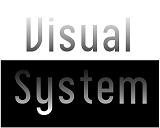As a copy editor, one of the most common mistakes I come across in writing is the incorrect use of fractions in subject-verb agreement. This may seem like a minor error, but it can actually have a significant impact on the clarity and effectiveness of your writing. So if you want to avoid this common mistake, read on to learn about the proper use of fractions in subject-verb agreement.
Firstly, it`s important to understand what we mean by subject-verb agreement. Simply put, this refers to the fact that the verb in a sentence must agree in number with the subject. In other words, if the subject is singular, the verb should be singular, and if the subject is plural, the verb should be plural.
When it comes to fractions, the key rule to remember is that they should always be treated as singular. This may seem counterintuitive, as we tend to think of fractions as representing multiple entities. However, in the context of subject-verb agreement, we treat the fraction as a single entity, and therefore use a singular verb.
For example, consider the following sentence:
“Two-thirds of the students in the class are taking the test today.”
In this sentence, “two-thirds” is the subject, and it is treated as singular. Therefore, the correct verb to use is “is” rather than “are”:
“Two-thirds of the students in the class is taking the test today.”
Another example:
“Three-fifths of the pie has been eaten.”
Again, “three-fifths” is the subject, and is treated as singular, so the correct verb is “has” rather than “have”:
“Three-fifths of the pie has been eaten.”
While it may take some getting used to, treating fractions as singular is a consistent and straightforward rule to follow. It not only ensures proper subject-verb agreement, but also helps to maintain clarity and precision in your writing.
In conclusion, if you want to avoid one of the most common mistakes in writing, remember to treat fractions as singular when it comes to subject-verb agreement. This small adjustment can have a big impact on the effectiveness of your writing, and will help you to communicate your ideas clearly and effectively to your readers.
